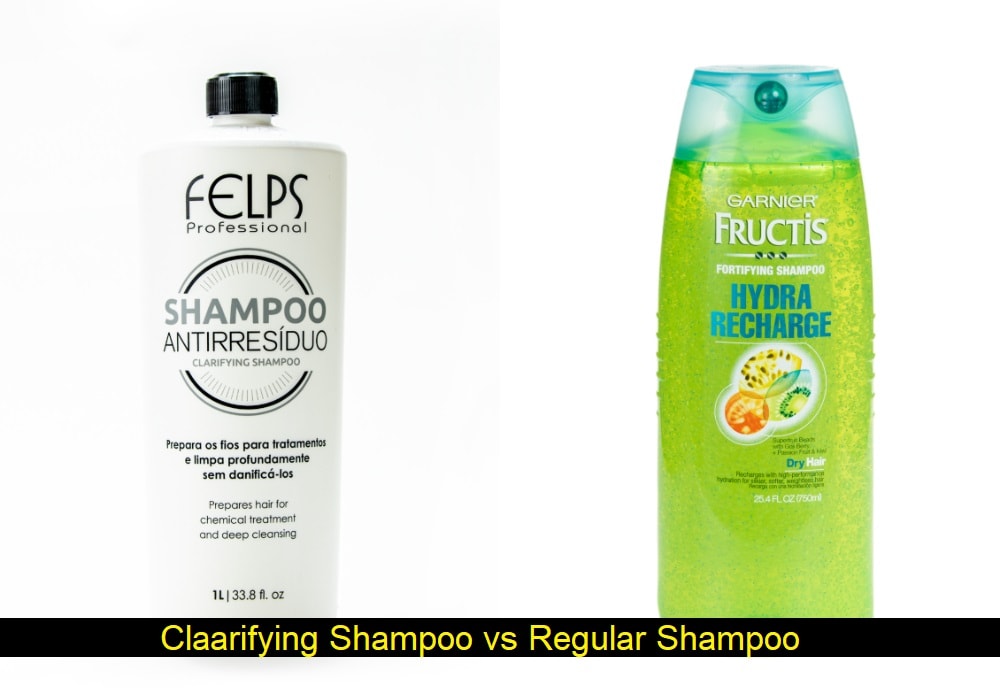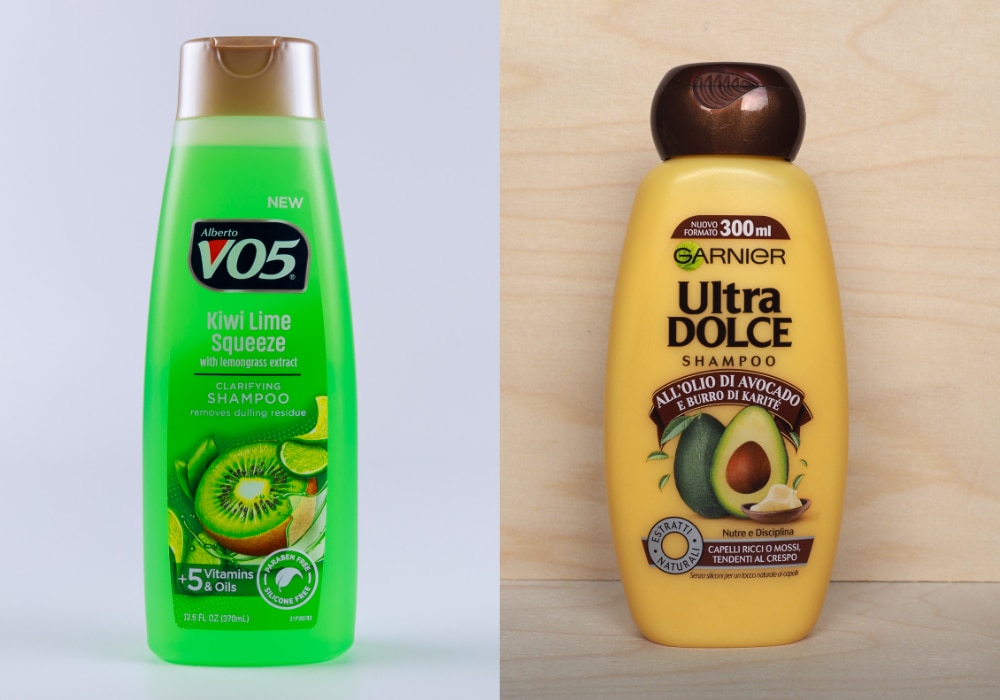When it comes to hair care, the debate between dry shampoo vs regular shampoo is gaining traction among beauty enthusiasts and professionals alike. As lifestyles become busier, more people are seeking quick solutions to maintain their hair's freshness and volume. Dry shampoo has emerged as a convenient alternative to traditional washing routines, offering a time-saving option for those who want to skip the shower. However, the question remains: Is dry shampoo a worthy substitute for regular shampoo, or does it merely serve as a temporary fix? This article explores the differences, benefits, and drawbacks of both options to help you make an informed decision for your hair care routine.
With the rise of social media platforms like Instagram and Pinterest, dry shampoo has become a staple in many beauty routines. It promises to absorb excess oil, add texture, and refresh your hair without water. On the other hand, regular shampoo remains the gold standard for deep cleansing and nourishing your scalp and strands. Understanding the nuances of both products is essential to maintaining healthy hair. Whether you're a fan of quick fixes or prefer a thorough cleansing experience, this article will provide you with the insights you need to choose the best option for your hair type and lifestyle.
From understanding the ingredients in each product to evaluating their long-term effects on hair health, this guide delves into the science behind dry shampoo vs regular shampoo. By the end of this article, you'll have a clearer understanding of how each product works, its benefits, and potential drawbacks. Let's dive into the world of hair care and uncover the secrets behind these popular products.
Read also:Setting Up A Patreon A Comprehensive Guide To Launching Your Creative Journey
What Is the Difference Between Dry Shampoo and Regular Shampoo?
Understanding the fundamental differences between dry shampoo vs regular shampoo is crucial for making the right choice for your hair care needs. Dry shampoo is a spray or powder-based product designed to absorb oil and sweat, giving your hair a refreshed appearance without water. In contrast, regular shampoo is a liquid formulation that uses water to cleanse the scalp and hair thoroughly. The primary distinction lies in their application methods and intended purposes. While dry shampoo offers a quick fix for oily hair, regular shampoo ensures a deep clean that removes dirt, product buildup, and environmental pollutants.
Why Choose Dry Shampoo Over Regular Shampoo?
For those with busy schedules or limited access to water, dry shampoo can be a lifesaver. It allows you to extend the life of your hairstyle, add volume, and refresh your hair between washes. The convenience factor is undeniable, especially for people who travel frequently or work long hours. Additionally, dry shampoo can be an excellent option for those with sensitive scalps, as it reduces the frequency of water exposure, which can sometimes irritate the skin. However, it's essential to note that dry shampoo is not a substitute for regular shampoo and should be used sparingly to avoid product buildup.
How Does Dry Shampoo Work?
Dry shampoo typically contains absorbent ingredients like cornstarch, talc, or silica, which soak up excess oil and sweat from the scalp. It also includes perfumes and conditioners to mask odors and add a pleasant scent to your hair. When applied correctly, dry shampoo can give your hair a clean, voluminous look without the need for water. However, overuse of dry shampoo can lead to residue buildup, which may weigh down your hair and cause scalp irritation. To maximize its benefits, it's important to use it as directed and combine it with regular shampooing for optimal results.
What Are the Benefits of Regular Shampoo?
Regular shampoo provides a deep cleanse that removes dirt, oil, and product buildup from your hair and scalp. It also helps maintain the natural balance of moisture and sebum, promoting healthy hair growth. Many regular shampoos are enriched with nourishing ingredients like vitamins, proteins, and botanical extracts, which strengthen and protect your hair from damage. Unlike dry shampoo, regular shampoo ensures a thorough cleaning experience that cannot be replicated by any quick fix product. For best results, it's recommended to wash your hair with regular shampoo at least twice a week, depending on your hair type and lifestyle.
Can Dry Shampoo Replace Regular Shampoo?
While dry shampoo offers a convenient alternative to regular shampoo, it cannot replace it entirely. Dry shampoo is designed to absorb surface oil and provide a temporary solution for oily hair. It does not penetrate the scalp or remove deep-seated dirt and product buildup like regular shampoo does. Over-reliance on dry shampoo can lead to scalp issues, such as clogged pores and dandruff. Therefore, it's important to incorporate regular shampoo into your routine to ensure your hair remains clean and healthy. The key is finding a balance between the two products to suit your individual needs.
What Are the Potential Drawbacks of Dry Shampoo?
Despite its convenience, dry shampoo has some potential drawbacks that users should be aware of. Overuse of dry shampoo can lead to product buildup, which may weigh down your hair and cause scalp irritation. Additionally, some formulations contain harsh chemicals that can dry out your scalp and hair, leading to further problems. It's crucial to choose a high-quality dry shampoo that suits your hair type and use it sparingly to avoid these issues. Pairing dry shampoo with regular shampoo can help mitigate its drawbacks and maintain optimal hair health.
Read also:Highest Scoring Quarter In Nba History A Deep Dive Into Basketballs Most Explosive Moments
How Often Should You Use Dry Shampoo vs Regular Shampoo?
The frequency of using dry shampoo vs regular shampoo depends on your hair type, lifestyle, and personal preferences. For most people, using dry shampoo once or twice a week as a quick fix is sufficient. On the other hand, regular shampoo should be used at least twice a week to ensure a thorough cleanse. If you have oily hair, you may need to shampoo more frequently, while those with dry or curly hair may benefit from less frequent washing. Experiment with different routines to find what works best for you and your hair's unique needs.
Is Dry Shampoo Harmful to Your Scalp?
When used in moderation, dry shampoo is generally safe for most people. However, excessive use can lead to scalp issues such as irritation, dandruff, and clogged pores. It's important to choose a dry shampoo formulation that suits your scalp type and avoid overusing it. If you experience any adverse reactions, discontinue use and consult a dermatologist for advice. Incorporating regular shampoo into your routine can help maintain scalp health and prevent potential problems associated with dry shampoo use.
What Should You Consider When Choosing Between Dry Shampoo vs Regular Shampoo?
When deciding between dry shampoo vs regular shampoo, consider factors such as your hair type, lifestyle, and specific hair care needs. For example, if you have oily hair, you may benefit from using dry shampoo more frequently to control oil production. Conversely, if you have dry or damaged hair, regular shampoo with nourishing ingredients may be more appropriate. Additionally, think about the convenience factor and how often you have access to water for washing your hair. Balancing both products in your routine can help you achieve optimal hair health and maintain your desired style.
How Can You Maximize the Benefits of Both Products?
To get the best of both worlds, incorporate dry shampoo and regular shampoo into your hair care routine strategically. Use dry shampoo as a quick fix between washes to refresh your hair and add volume. Then, follow up with regular shampoo at least twice a week to ensure a deep cleanse and maintain scalp health. Experiment with different products and application techniques to find what works best for your hair type and lifestyle. By combining the convenience of dry shampoo with the cleansing power of regular shampoo, you can achieve healthy, beautiful hair that looks and feels its best.
What Are Some Tips for Using Dry Shampoo Effectively?
Here are some tips for using dry shampoo effectively:
- Shake the can well before use to ensure an even distribution of product.
- Apply dry shampoo to the roots of your hair, focusing on oily areas.
- Wait a few minutes before brushing out the product to allow it to absorb excess oil.
- Avoid overusing dry shampoo, as it can lead to product buildup and scalp irritation.
- Choose a formulation that matches your hair color to avoid visible residue.
What Are the Key Ingredients to Look for in Regular Shampoo?
When selecting a regular shampoo, look for key ingredients that address your specific hair care needs:
- Moisturizing agents like glycerin and panthenol for hydration.
- Proteins such as keratin and collagen for strength and repair.
- Botanical extracts like aloe vera and chamomile for soothing properties.
- Vitamins like biotin and vitamin E for nourishment and protection.
Conclusion
In conclusion, the debate between dry shampoo vs regular shampoo highlights the importance of understanding your hair care needs and preferences. While dry shampoo offers a convenient solution for quick fixes, regular shampoo remains essential for maintaining scalp health and promoting hair growth. By balancing both products in your routine, you can achieve optimal hair health and maintain your desired style. Remember to choose high-quality formulations that suit your hair type and use them as directed for the best results. With the right approach, you can enjoy the benefits of both dry shampoo and regular shampoo in your hair care journey.
Table of Contents
- What Is the Difference Between Dry Shampoo and Regular Shampoo?
- Why Choose Dry Shampoo Over Regular Shampoo?
- How Does Dry Shampoo Work?
- What Are the Benefits of Regular Shampoo?
- Can Dry Shampoo Replace Regular Shampoo?
- What Are the Potential Drawbacks of Dry Shampoo?
- How Often Should You Use Dry Shampoo vs Regular Shampoo?
- Is Dry Shampoo Harmful to Your Scalp?
- What Should You Consider When Choosing Between Dry Shampoo vs Regular Shampoo?
- How Can You Maximize the Benefits of Both Products?


